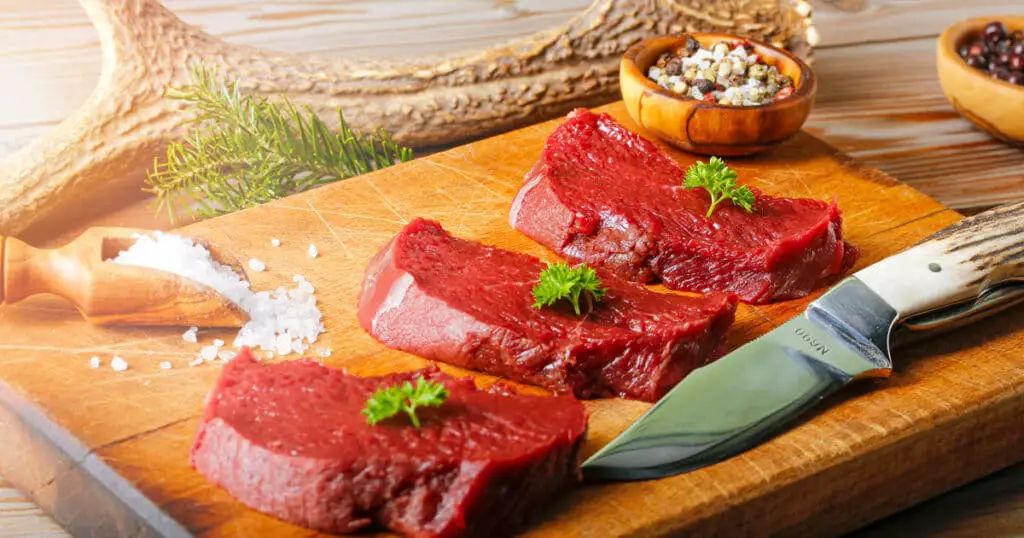What is deer meat called? Maybe you’ve heard people call it venison, but are there exceptions? Does the age of the animal matter? In other words, do we have different names for baby deer and adult deer meat? Let’s find out here.
Deer meat is always called venison, regardless of the animal’s age. This makes sense when you consider we hardly ever eat baby deer meat.
And there is no reason to have a name for meat we never eat. In fact, you would be breaking the law if you deliberately hunted and killed a baby deer, also called a fawn.
Now you know that deer meat is always called venison, let’s discover where that name came from.
Why is Deer Meat Called Venison?
Table of Contents
ToggleYou’ve probably noticed that in English, we sometimes have names for the meat from an animal that differs from the animal name itself.
For example, we call cow meat “beef” or “veal,” not “cow.” It’s the same with adult sheep, the meat of which we call mutton.
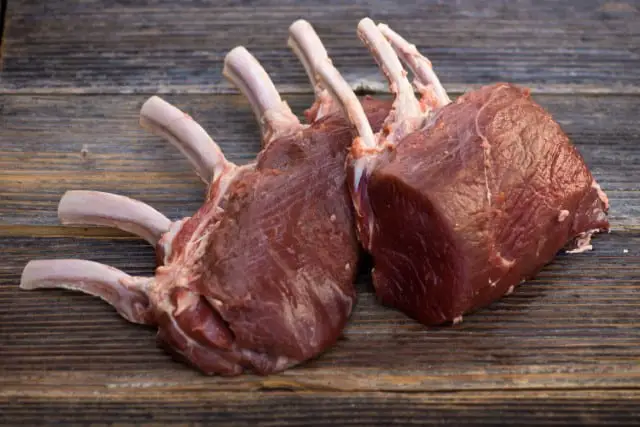
When it comes to deer, we have inherited the Norman practice of referring to its meat as “venison.” Originally, this word referred to any kind of game meat, but over the centuries it became specifically attached to deer.
It’s not just white-tailed deer that is called venison. We use this name for other cervid meat, too.
Here are the North American animals that we call venison when we eat their meat:
There are other deer species in different parts of the world that we also refer to as venison, such as the sika deer.
Now that you know what deer meat is called and how it got that name, let’s learn some more about venison.
Venison Nutritional Information
Venison is a healthy addition to any diet. Let’s take a look at some of the nutrients it offers.
Protein
Venison is higher in protein than other popular meats. It provides complete protein, offering essential amino acids.
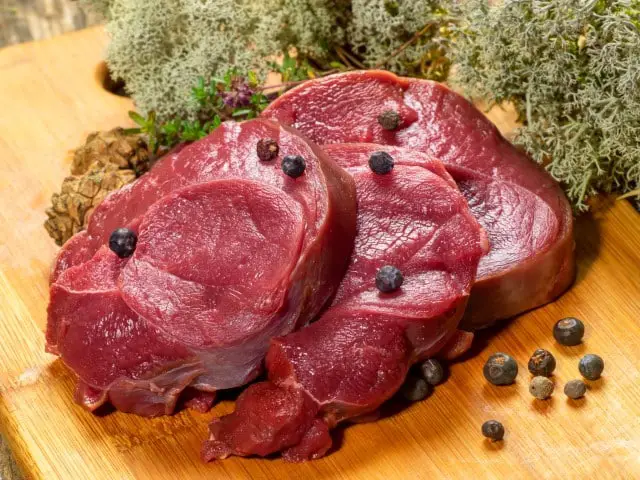
Your body needs protein for many different functions, including muscle-building, growth, and repair. Protein is also necessary for hormone production.
It strengthens our immune system, too.
The table below compares the protein content of venison to pork, lamb, and beef. It shows each meat’s protein measurement for a half-pound patty when it’s cooked.
| Ground Meat Type | Protein in Half-Pound Patty (cooked) |
|---|---|
| Venison | 60.2 grams |
| Beef | 58.3 grams |
| Pork | 58.3 grams |
| Lamb | 56.1 grams |
B Vitamins
Venison is a rich source of B vitamins, such as B6 and B12. These vitamins are essential for brain health.
That is why vitamin B6 or B12 deficiency can cause depression or mood issues. Normal brain development requires vitamin B6.
Vitamin B6 is also essential for maintaining immune and nervous system health.
Some of the health conditions that vitamin B6 may help alleviate include PMS (premenstrual syndrome) and diseases of the blood vessels and cardiovascular system, as well as sideroblastic anemia.
Your nerve and blood cells need vitamin B12 to stay healthy. It is also used in DNA production, and this is the material of which your cells are made.
Vitamin B12 helps prevent is megaloblastic anemia, a condition that leads to weakness and tiredness.
Zinc
Venison is an excellent dietary source of zinc. All the cells in your body need zinc, and it’s especially crucial for the immune system.
Zinc is so important for the human body that only iron is more essential. In fact, more than 17 percent of people in the world may have a zinc deficiency or be at risk for one.
Haem Iron
Deer meat is also an excellent source of haem iron. If you have a problem with anemia or a low iron level, it will quickly help you.
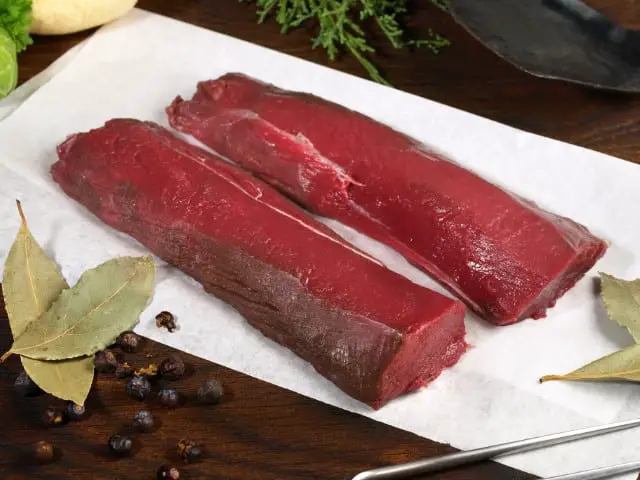
Haem iron is a kind of iron that our bodies are able to more quickly absorb than other forms. There is iron in certain kinds of vegetation, but it’s harder for our bodies to absorb and use.
Minerals in Venison
Venison is also rich in minerals that we need to stay healthy. These minerals include:
- Zinc
- Phosphorus
- Iron
- Selenium
- Potassium
- Copper
- Magnesium
- Sodium
- Calcium
- Manganese
Other Nutritional Features of Venison
Venison also has many other nutritional characteristics and benefits.
Lower in Fat and Calories than Other Meats
Venison is one of the leanest types of meat. This means it’s a fantastic choice when you need to bring more protein into your diet without risking weight gain.
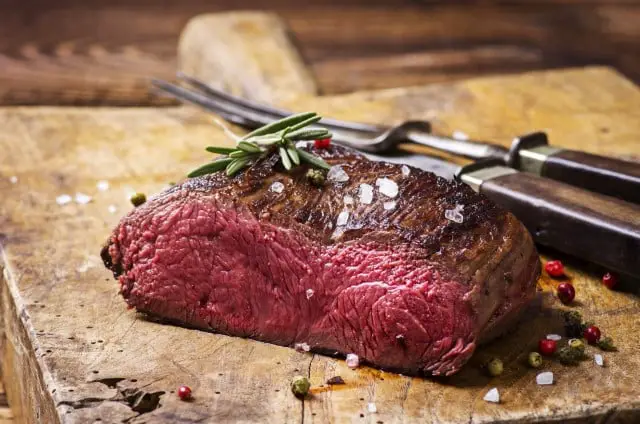
This is combined with the outstanding nutrient density of venison. When you compare one gram of venison to an equal amount of another red meat, the amount of nutrition you get for the calories is remarkable.
Venison is especially valuable for its omega-3 content. It has around five times as much of this fatty acid as beef.
Venison has a low level of saturated fat. This is just one way it’s a much better alternative to beef.
Deer meat offers a noticeably lean taste that fans appreciate.
Most Often Grass-Fed
When deer feed on pastures, their meat provides higher levels of omega-3 fatty acids.
Grass-fed meat also has a bit more vitamins K, D, and A than other kinds of meat. There is also more conjugated linoleic acid (CLA).
This is a fatty acid with possible benefits. The exact nutrient levels in venison vary by the deer’s diet.
As most deer feed on fresh pasture, their meat tends to have larger amounts of omega-3 than other kinds of meat. Additionally, venison has an optimal balance between omega-3 and another kind of fatty acid called omega-6.
This is crucial, as an imbalance between omega-3 and omega-6 fatty acids can cause health issues.
What Does Venison Taste Like?
Venison has what most people describe as a “gamey” flavor. This means that it has an earthy taste and a rather rich flavor.
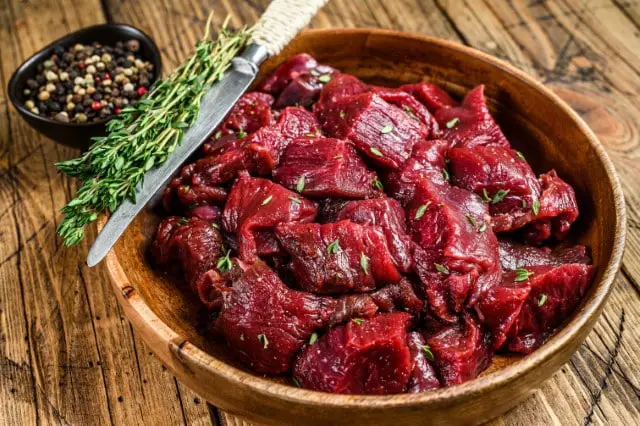
You will probably notice flavors of herbs, acorns, and sage when you eat venison. Venison is usually juicy.
Have you ever tried lamb? You will probably notice some similarities between it and venison.
You’ll want to cut off the fat from your venison before you eat it. Most of the unpleasantly “gamey” flavor tends to be concentrated there.
You’ll probably hate the taste of venison if you don’t get rid of the fat first.
Common Issues That Harm the Flavor of Venison
There are many different factors that will lead to venison’s taste getting ruined. These include:
- Inadequate field care and dressing
- Inadequate trimming (fat trimming)
- Incorrect cooling temperatures
- Incorrect cooking
Venison is Kind to the Environment
Eating venison is a more sustainable way to enjoy meat. Other kinds of red meat, such as beef, involve agricultural operations that have enormous carbon footprints.
Beef production operations also take up vast stretches of land, meaning that forests and grasslands can’t exist there. Additionally, industrial agriculture uses harsh and toxic chemicals.
When hunters kill and eat deer in a responsible and sustainable way, they only take what the land can afford without taking anything else or creating any damage.
In fact, hunting deer can benefit the environment by preventing overpopulation which can put a strain on the biosystem. If you hunt only the animals you will eat, it’s a truly sustainable way of consuming meat.
Are there Potential Downsides to Eating Venison?
There are few downsides to eating deer meat. One of them is the possibility that the deer could be diseased.
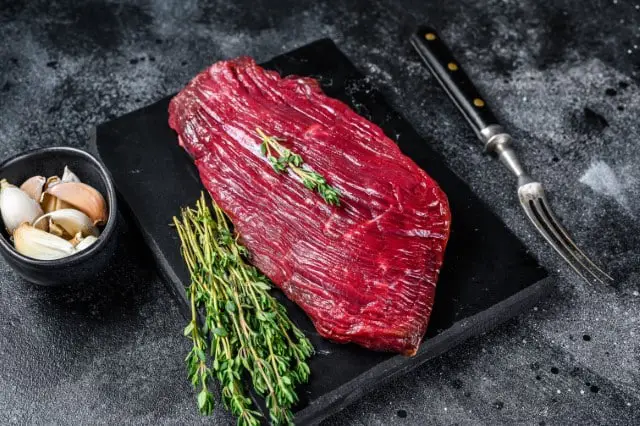
One disease seen in deer is called chronic wasting disease (CWD). This disease is sometimes found in the United States, Canada, and Norway.
An experienced hunter will make sure he or she understands the symptoms of disease in deer and avoids these animals.
Final Thoughts: What is Deer Meat Called?
As we’ve seen here, deer meat is always called venison. The age of the animal doesn’t matter.
Try venison one day if you ever have the chance. It’s extraordinarily nutritious, and you just might love it.

